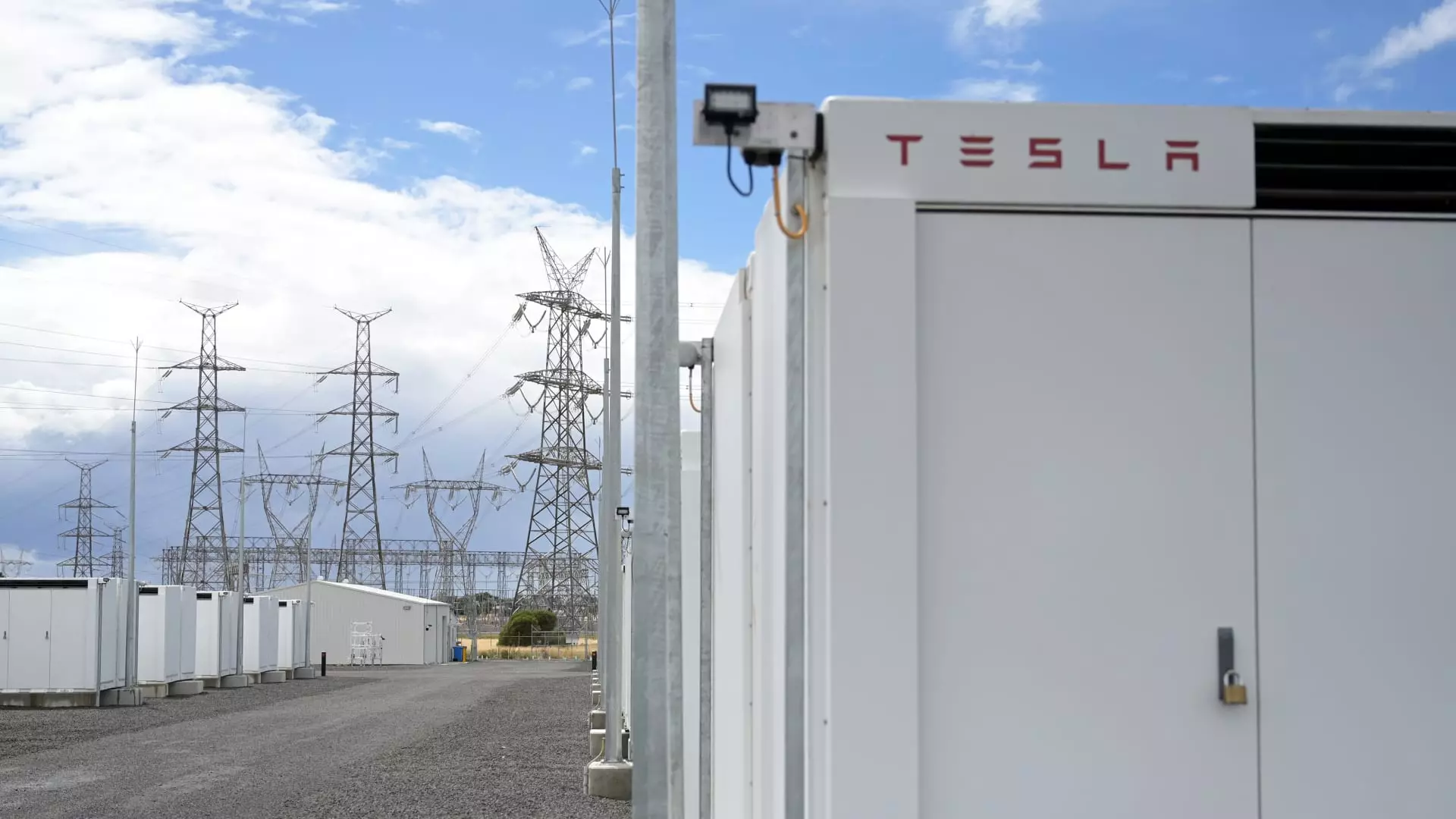Tesla’s recent agreement to construct a grid-scale battery power plant in China is not only a monumental step for the company but also represents a strategic pivot amidst a volatile geopolitical landscape. The deal, with a whopping value of 4 billion yuan (approximately $556 million), marks Tesla’s assertion of dominance in a market critical for the future of energy storage. This mammoth project is set to be the largest of its kind in China upon its completion, showcasing Tesla’s commitment to innovative energy solutions at a time when the relationship between the U.S. and China feels anything but cooperative.
This endeavor is not just a business decision; it is a calculated maneuver in a sector racing toward sustainability. Tesla’s ability to maneuver in this intricate environment speaks volumes about its resilience and adaptability. As utility-scale battery systems become indispensable for balancing the demands of electricity supply—especially as renewable sources like solar and wind become more prevalent—Tesla finds itself at the cusp of a transformative wave. It’s a bold step that highlights the undeniable urgency for efficient energy storage, a critical factor in mitigating the intermittent nature of renewables.
China’s Energy Landscape and Tesla’s Position
China is currently in a transformative phase, with the government setting ambitious targets to increase its battery-powered electricity supply to nearly 40 gigawatts by 2025. This substantial commitment creates a fertile ground for companies like Tesla and underscores the market’s growing demand for innovative battery technology. Tesla’s involvement in this energy revolution positions it not just as a player but as a leader, further complicating the competitive dynamics with local giants like CATL and BYD.
While CATL commands a formidable 40% share of the global battery market, Tesla’s introduction of its Megapack technology offers a distinctive edge. Each Megapack holds the promise of delivering up to 1 megawatt of power for four hours, providing a “smart regulator” function for urban electricity via strategic grid resource adjustments. This technology is more than just another addition to the market; it symbolizes a critical advancement in addressing the inefficiencies of urban power supply.
The Geopolitical Undertones
The backdrop of Tesla’s venture is steeped in complex geopolitical tensions, particularly following the tariffs imposed during the Trump administration, which altered the trading landscape between the U.S. and China. This agreement surfaces during a time when many American companies are retreating from an increasingly fraught relationship with China. The fact that Tesla, led by CEO Elon Musk—who was once aligned with Trump—chooses to deepen its ties in China offers a noteworthy counter-narrative.
One might argue that this strategic leap could further entrench Tesla in a market characterized by strong local players, potentially enabling the company to secure future partnerships that might become instrumental not only in China but on a global scale. As competition in technology has historically shown, adaptability is the cornerstone of survival. Tesla’s foray into a tightly knit market where it must contend with local competitors will necessitate not just innovation but also astute negotiations and alliances.
Future Implications for Energy Storage
As the International Energy Agency reports a remarkable increase in global battery energy storage capacity in 2023—up by 42 gigawatts—Tesla isn’t just dipping its toes into an evolving sector; it’s making a decisive splash. The company’s strategic moves signal confidence in the future’s necessity for energy storage solutions, which will be paramount as global energy needs evolve with increasing urgency for sustainable solutions.
This deal in China might very well be a quintessential case study of how to balance innovation with geopolitical realities, offering insights into the complexities of international business in the 21st century. Tesla’s alliance—especially at a moment when American companies often tread carefully around China—could redefine the dynamics of energy technology and market competition for years to come. The stakes are undeniably high, and Tesla’s actions may not only reflect its immediate goals but also redefine how energy storage is viewed and valued on a global scale.

Leave a Reply